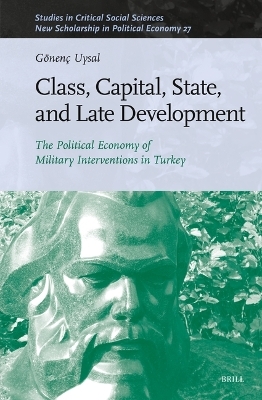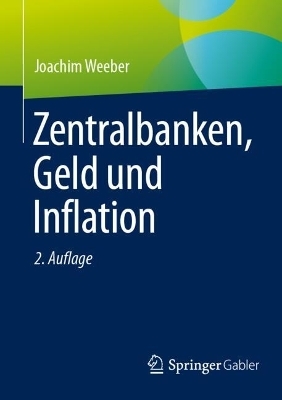
Class, Capital, State, and Late Development
Brill (Verlag)
978-90-04-69218-3 (ISBN)
In Class, Capital, State, and Late Development: The Political Economy of Military Interventions in Turkey, Gönenç Uysal discusses state-military-society relations in Turkey from the late Ottoman era to today by exploring state-class-capital relations under the dynamics of uneven development. Uysal approaches Turkey as a late-developing social formation characterised by unevenness and dependency, arising from the contradictions of capitalist relations of production and integration with the world capitalist system. By drawing upon historical materialism/Marxism, Uysal offers a critical/radical understanding of (re)organisation of the state and military interventions in politics in peripheries of global capitalism.
Gönenç Uysal, Ph.D. (2016), King’s College London, is Lecturer of International Political Economy at Lancaster University. Uysal has published articles on sub-imperialism, secularism and modernity, and the Global South in several journals, including Review of Radical Political Economics (SAGE) and Journal of Historical Sociology (Wiley-Blackwell Publishing Ltd.). Her co-edited book Turkey and the Global Political Economy is forthcoming from Bloomsbury/IB Tauris.
Acknowledgements
Abbreviations
Note on Translations
1 Introduction: Turkey as a Late-Developing Country
1 Dominant Literature on Civil–Military Relations in Peripheries
2 Dominant Approaches to Civil–Military Relations in Turkey
2.1 Modernisation Theory
2.2 The Conservative-Liberal Paradigm
3 Capitalism, Development, and the Military in Peripheries
3.1 The Contradictions of Capitalism, Unevenness, and Late Development
3.2 Late Development in Peripheries
3.3 Late Development and the Capitalist State and Military
4 The State, the Military, and Classes in Turkey: an Overview of the Book
2 The Revolutions of 1908 and 1923, and the State and the Military in Turkey
1 Late Development and Social Formation in Turkey: the Political Economy of the Late Ottoman Modernisation
2 The Revolution of 1908 and the Military
2.1 The State and Class Relations in the Twentieth-Century Ottoman Empire
2.2 The 1908 Revolution as a Bourgeois Revolution
2.3 The Military as the Pioneer and Guardian of the 1908 Revolution
3 The Bourgeois Revolution of 1923 and the Military
3.1 The Political Economy of the War of Independence
3.2 The Political Economy of the Republican Modernisation
3.3 The Military as the Pioneer and Guardian of the 1923 Revolution
3 The Coup of 1960 and the Guardianship of the Military
1 Classes and the State in the Post-second World War Order
1.1 The Political Economy of the Legacy of the War
1.2 The Reconfiguration of Class Relations in the Aftermath of the Second World War
2 The State and Classes under Demokrat Parti
2.1 The National Economy between 1950 and 1958
2.2 The Demokrat Parti’s Hegemonic Project
2.3 The Political Economy of the Transformation of the Military
2.4 The Demokrat Parti’s Hegemonic Crisis and the Military
3 The Coup of 1960 and Its Aftermath
3.1 The Coup of 1960 and the Social Classes
3.2 The Transition to Import-Substitution Industrialisation, the State, and Class Relations
3.3 The Institutionalisation of the Military’s Guardianship Role
4 The Coup of 1980 and the Reorganisation of the Military
1 The Crisis of the Late 1960s and the Memorandum of 1971
1.1 Class Relations in the 1960s
1.2 The Hegemonic Crisis of the Late 1960s
1.3 The Memorandum of 1971
2 The State and Classes in the 1970s
2.1 The Political Landscape and Class Relations in the 1970s
2.2 The Prolonged Hegemonic Crisis of the Late 1970s
3 The Political Economy of the Coup of 1980 and Its Aftermath
3.1 The Coup of 1980 and Social Classes
3.2 The Transition to Neoliberalism and Export-Led Industrialisation
3.3 The State and Classes under Anavatan Partisi
3.4 The Military’s Guardianship Role and Authoritarian Statism
5 The “Postmodern Coup” of 1997 and Political Islam
1 The Political Economy of the Rise of Political Islam
1.1 The Composition of Islamic Capital
1.2 Financial Liberalisation and the Formation of Islamic Finance Capital
1.3 The Rise of Milli Görüş
2 Classes, Crises, and Milli Görüş
2.1 The Crises of Financialisation in the Early 1990s
2.2 The Hegemonic Crisis of the Early 1990s
2.3 Milli Görüş and Social Classes
2.4 Milli Görüş and Secularism
3 The Political Economy of the Process of 28 February
3.1 The Memorandum of 1997
3.2 Social Classes and the Process of 28 February
3.3 Classes, the State, and the Military in the Aftermath of the Process of 28 February
6 Adalet ve Kalkınma Partisi and the “New Era in Civil–Military Relations”
1 The Political Economy of the Rise of the akp
1.1 The Economic Crisis of 2001
1.2 The Emergence of the akp
1.3 The Rise of the Gülen Congregation
2 The State, Classes, and the Military under the akp (2002–2007)
2.1 Classes and the akp
2.2 The Hegemonic Project of Conservative Democracy
2.3 The Military and the akp
2.4 The “E-Memorandum” of 2007
3 The State, Classes, and the Military under the akp (2007–2010)
3.1 The Ergenekon and the Sledgehammer Trials
3.2 The Constitutional Amendments of 2010
7 The Failed Coup Attempt of 2016: Resistance, Crisis, and Restoration
1 The State, Classes, and the Crisis under the akp (2010–2015)
1.1 The Emergence of Indications of an Economic Crisis
1.2 Resistance against Neoliberal Islamism
1.3 The Crisis of the Coalition between the akp and the Gülen Congregation
2 The State, Classes, and the Crisis under the akp (2015–2018)
2.1 The Consolidation of Fascism (2015–2016)
2.2 The Abortive Coup of 2016
3 The Fascist State and Regime and the Military (2015–2018)
3.1 The Reorganisation of the Military
8 Conclusion
1 From Concrete to Abstract: Late Development, the State, and the Military
2 From Abstract to Concrete: State–Military–Society Relations in Turkey
3 Concluding Remarks on the Crisis of Fascism
References
Index
| Erscheinungsdatum | 06.03.2024 |
|---|---|
| Reihe/Serie | Studies in Critical Social Sciences / New Scholarship in Political Economy ; 276/27 |
| Verlagsort | Leiden |
| Sprache | englisch |
| Maße | 155 x 235 mm |
| Gewicht | 577 g |
| Themenwelt | Sozialwissenschaften ► Politik / Verwaltung ► Staat / Verwaltung |
| Sozialwissenschaften ► Soziologie | |
| Wirtschaft ► Volkswirtschaftslehre ► Wirtschaftspolitik | |
| ISBN-10 | 90-04-69218-5 / 9004692185 |
| ISBN-13 | 978-90-04-69218-3 / 9789004692183 |
| Zustand | Neuware |
| Haben Sie eine Frage zum Produkt? |
aus dem Bereich


